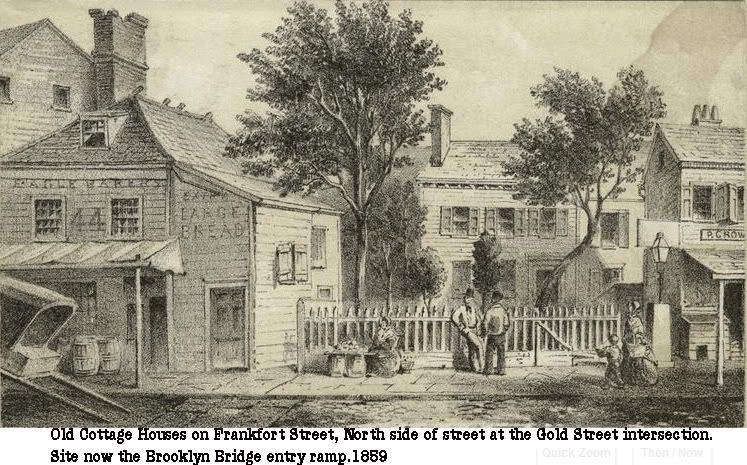While researching Philip White’s life in postbellum New York City, Peterson used city directories to uncover that while White had moved his residence from Lower Manhattan to Brooklyn in 1870, his pharmacy remained in its same location in Manhattan until his death in 1891. Peterson wondered why, since he moved his home, White hadn’t also moved his business, either in 1863 in the aftermath of the Draft Riots (which traumatized the black community), or in 1867, when he married Elizabeth Guignon? So she decided to walk the streets where White’s home had once been located—and found the entrance ramp for the Brooklyn Bridge. To build the unsuspended approaches and anchorages leading up to the bridge’s span on the Manhattan side, “this required clearing six blocks between Chatham and Water and Frankfort and Duane Streets…Philip’s drugstore on the corner of Frankfort and Gold was saved, but his home on Vandewater Street was demolished” (311). City directories led to city maps which led to city streets which revealed urban renewal – and a crucial piece of Peterson’s story.View a booktalk by Professor Peterson on cspan She will we speaking at the Brooklyn Museum on Saturday February 4, 2012
Thursday, February 2, 2012
90 Gold Street: Site Of Philip White's Pharmacy
below from NYPL Digital Gallery, The New York Public Library
Carla Peterson talks about her ancestor Philip White in her book, Black Gotham: A Family History of African Americans in Nineteenth-Century New York City

